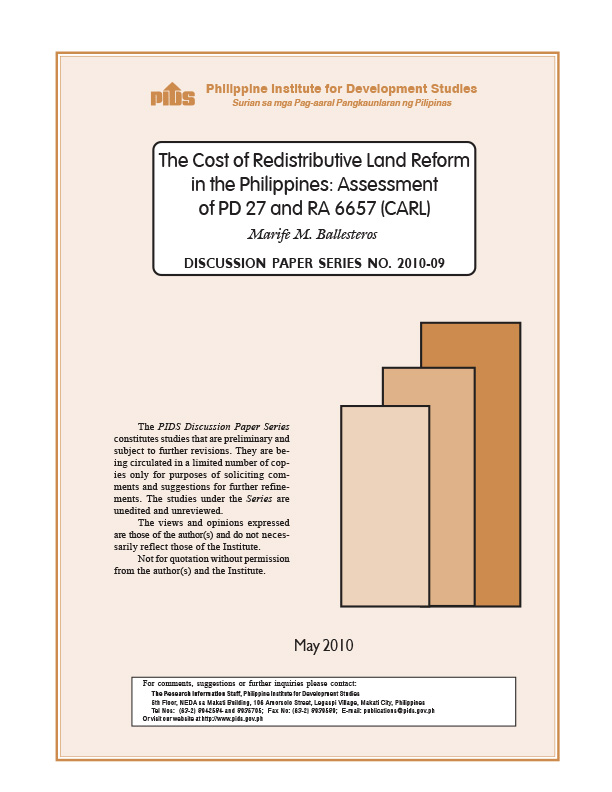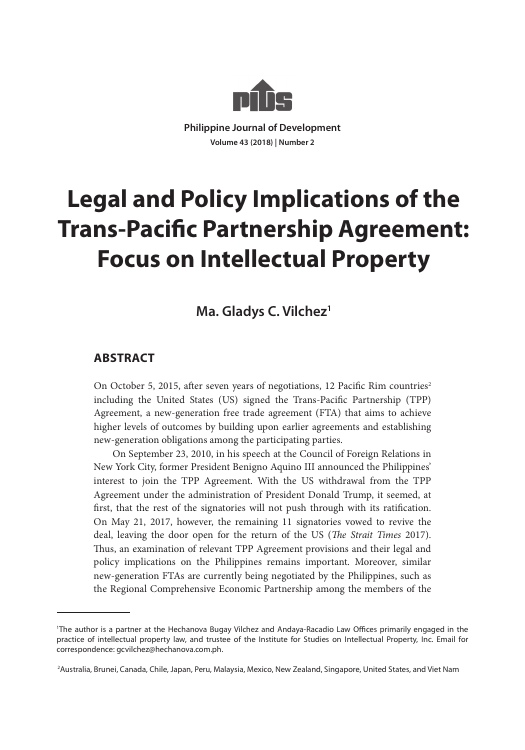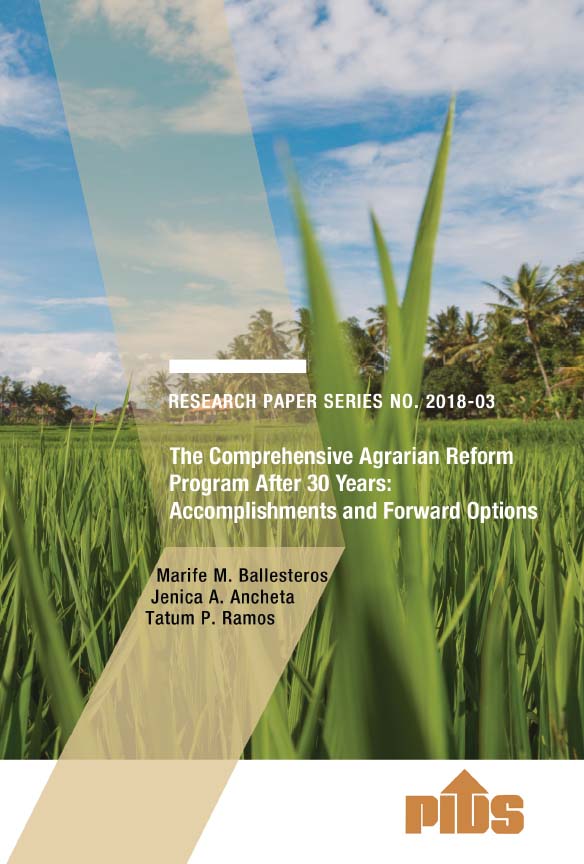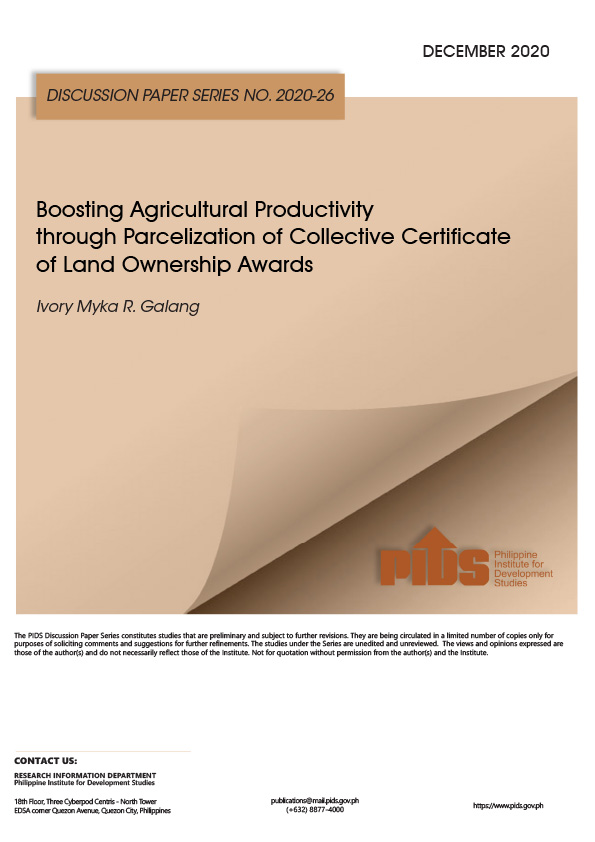This paper examines the cost of implementing redistributive land reform in the Philippines. Land redistribution has become the core feature of land reform in the country since 1972 with the approval of PD 27. The coverage of the program was expanded to all agricultural lands under RA 6657 or CARL of 1988. Consequently, funding for land reform increased significantly as government chose to fully subsidize land acquisition, distribution, and transfers. From 1972 to 2008, the cost to implement the program has been rising in real terms both in absolute and relative values. The substantial increases in unit cost have been traced to administrative expense and compensation to landowners. Landowners’ compensation (LOC) is a major cost item specifically as land reform shifted from a confiscatory scheme to market land valuation. But the impact of market valuation has not been reflected in the initial years of CARP. It appears that most lands acquired in the early years of CARP are marginal lands thus the lower valuation compared to PD 27 which covered mostly irrigated lands with yields higher than average. The impact of market valuation on LOC has been felt in Phase II of CARP when the program started covering lands planted to higher value crops. Over time, land reform has become a major burden to taxpayers and fully subsidizing the program is not tenable due to fiscal constraints and a growing consensus among scholars that land reform as a strategy to agriculture development has become passé. These same issues are likely to face the extension of CARP in the next five years. Government has to seriously consider alternative ways to land redistribution and alternative programs to achieve land equity and poverty reduction. The paper suggests the following strategies: (1) facilitate negotiated land reform specifically for high value crops; (2) a leaner and rationalized DAR bureaucracy; and (3) effective land tax policy.
Citations
This publication has been cited 1 time
- Santos-Recto, Vilma. 2016. House Bill 1949: An act condoning unpaid amortizations of lands awarded to Comprehensive Agrarian Reform beneficiaries and for other purposes. House of Representatives.













